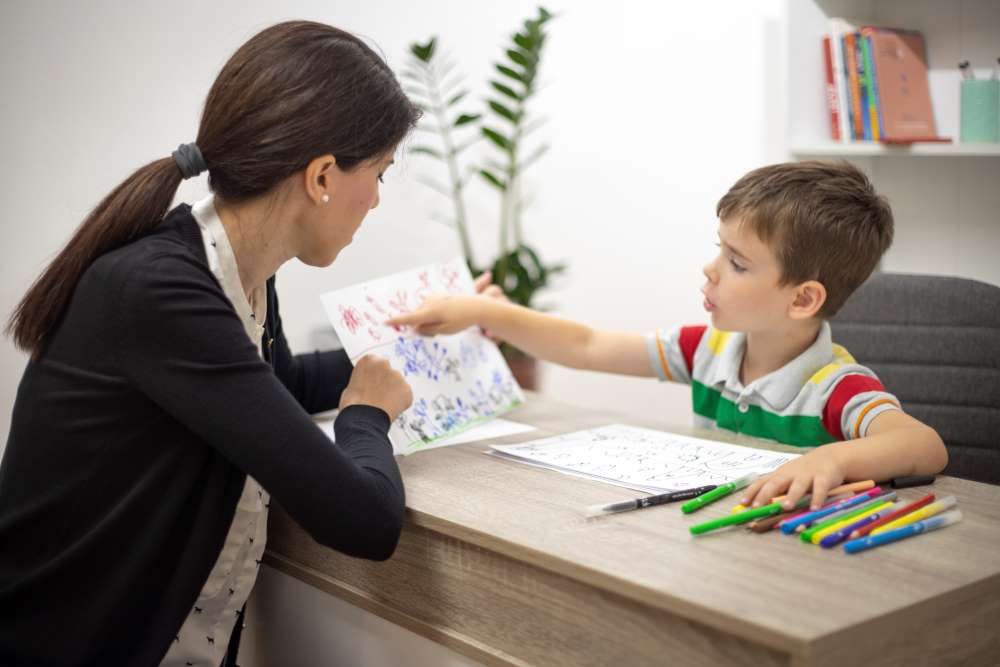
Mental health disorders that negatively impact the child's life, such as anxiety, ADHD, or depression, are common. In most cases, various types of therapy can help children with these issues. Not only can these therapies help improve mental health in your child, but they also decrease the amount of medication and help your child live a happier and healthy life. No two children will require the same type of therapy, nor should a child be put on just one type of therapy. Many different forms of psychotherapy exist, each with a list of specific disorders and goals that may or may not apply to a certain individual. Therapy's goal is to treat underlying mental issues in hopes that they can eventually lead to improved social, academic, and personal functioning in the individual.
Why is Therapy Essential and Where Can You Find These Services?
The main reason therapy is important is to treat symptoms of a mental health disorder and improve overall mental health. Therapy can treat various disorders and conditions, including social anxieties, depression, anxiety disorders, phobias, and general mood disorders. The term psychotherapy covers a variety of strategies and types of treatment, each with its own set of applications.
You can find these services by searching online, visiting your local library, or even by asking friends or family. Because each child will require different treatment types, you must find a therapist near you. The following types of therapy are recommended to help you choose the best one for your child's needs.
1. Cognitive Behavior Therapy
Cognitive Behavioral Therapy (CBT) is a form of psychotherapy that attempts to treat youths with behaviors and adjustments that affect their mental health. CBT works by exposing the individual to different stimuli and then observing what behaviors occur. Once the therapist discovers the best methods for your child, this therapy can help improve their problems.
In most cases, CBT focuses on helping children address emotional issues stemming from daily situations and events. This therapy can teach children to recognize their emotions, which will lead them to deal with them more healthily. CBT also helps kids improve their social skills and reaction times in daily situations.
CBT is a short-term therapy that lasts between three and 12 months, depending on your child's issues. The first step with CBT is to recognize when these issues are occurring on an emotional level so that the child knows what triggers them.
2. Dialectical Behavior Therapy
Dialectical Behavior Therapy (DBT) is a psychotherapeutic treatment that helps children with severe and chronic mental health problems. It was originally designed for people with borderline personality disorder, but it's since been successful in treating depression and anxiety. DBT teaches patients how to interact with others, helps them solve problems, and improves their daily lifestyle.
Many children with undiagnosed mental health issues are often misdiagnosed as a result of the symptoms they exhibit. In most cases, people will assume that these children are just lazy or unmotivated, pushing them to do more and be more successful in social settings. However, these symptoms can be deadly for a child, as they will interact inappropriately with others and be more likely to use dangerous drugs or engage in self-harming behaviors.
DBT teaches children how to identify and overcome their problems through exercises that help increase their awareness of themselves. By identifying what issues make them feel unhappy or upset, DBT allows them to make the changes necessary for improvement.
3. Art Therapy
Art therapy helps children with mental health disorders by using art as a tool to express themselves. By using art to express their feelings, children can learn how to connect with their inner selves and solve problems in ways that won't necessarily harm them.
For example, a child dealing with anxiety issues may express these feelings through drawing or painting. Children use pretend play and role-playing during art therapy sessions so they can understand their behavior and emotions. This helps the child gain the necessary insight needed to understand their emotions and put a stop to them in a healthy way.
Conclusion
Cognitive behavioral therapy is an important therapy that can help your child deal with the emotional issues that stem from their disorders. If you are looking for the best psychotherapeutic treatment for your child, talk to a mental health professional and find out which kind of therapy could best help them. Parents should always be sure that their children receive the appropriate treatment for their mental health issues and take care of their emotional needs.



























